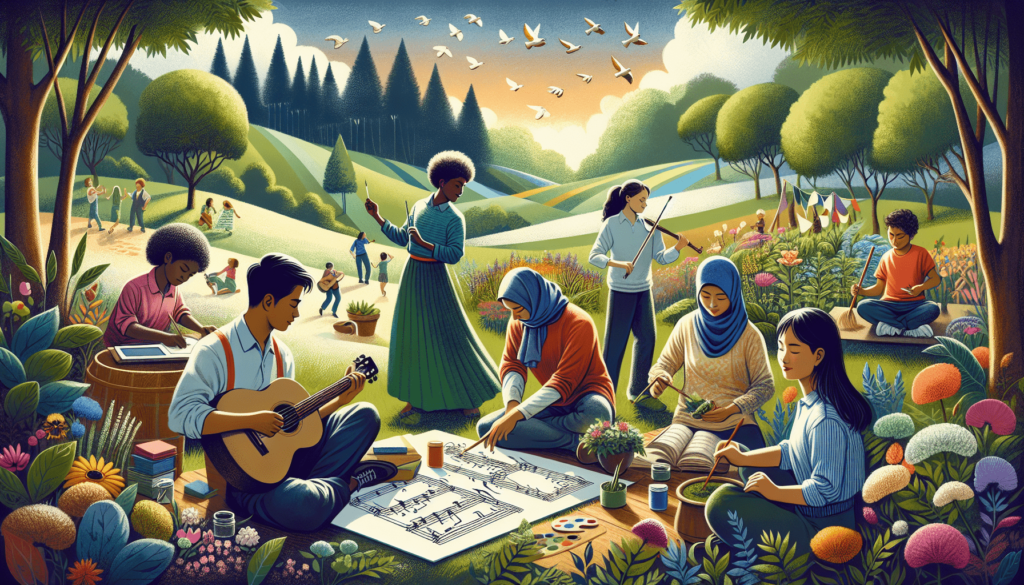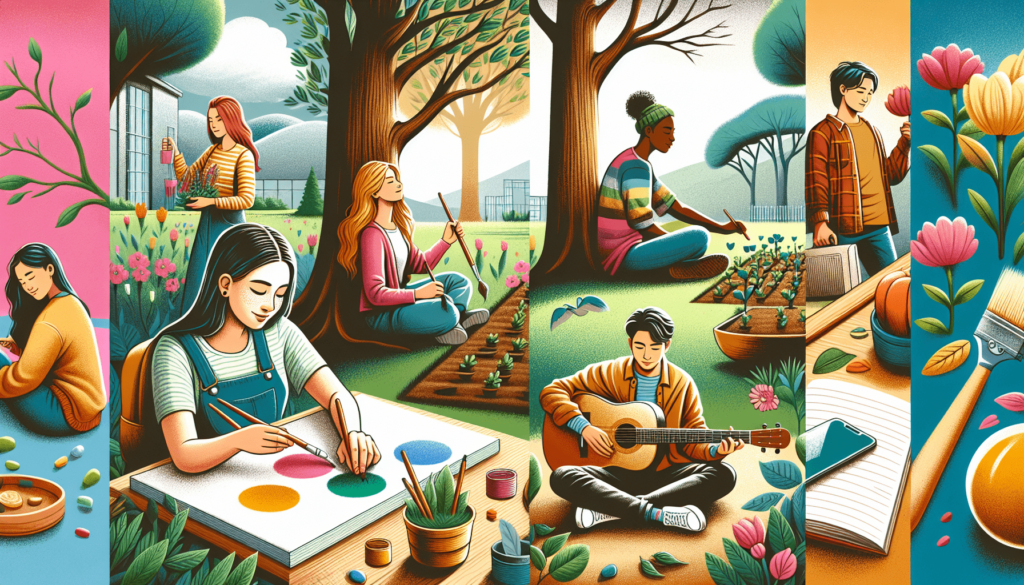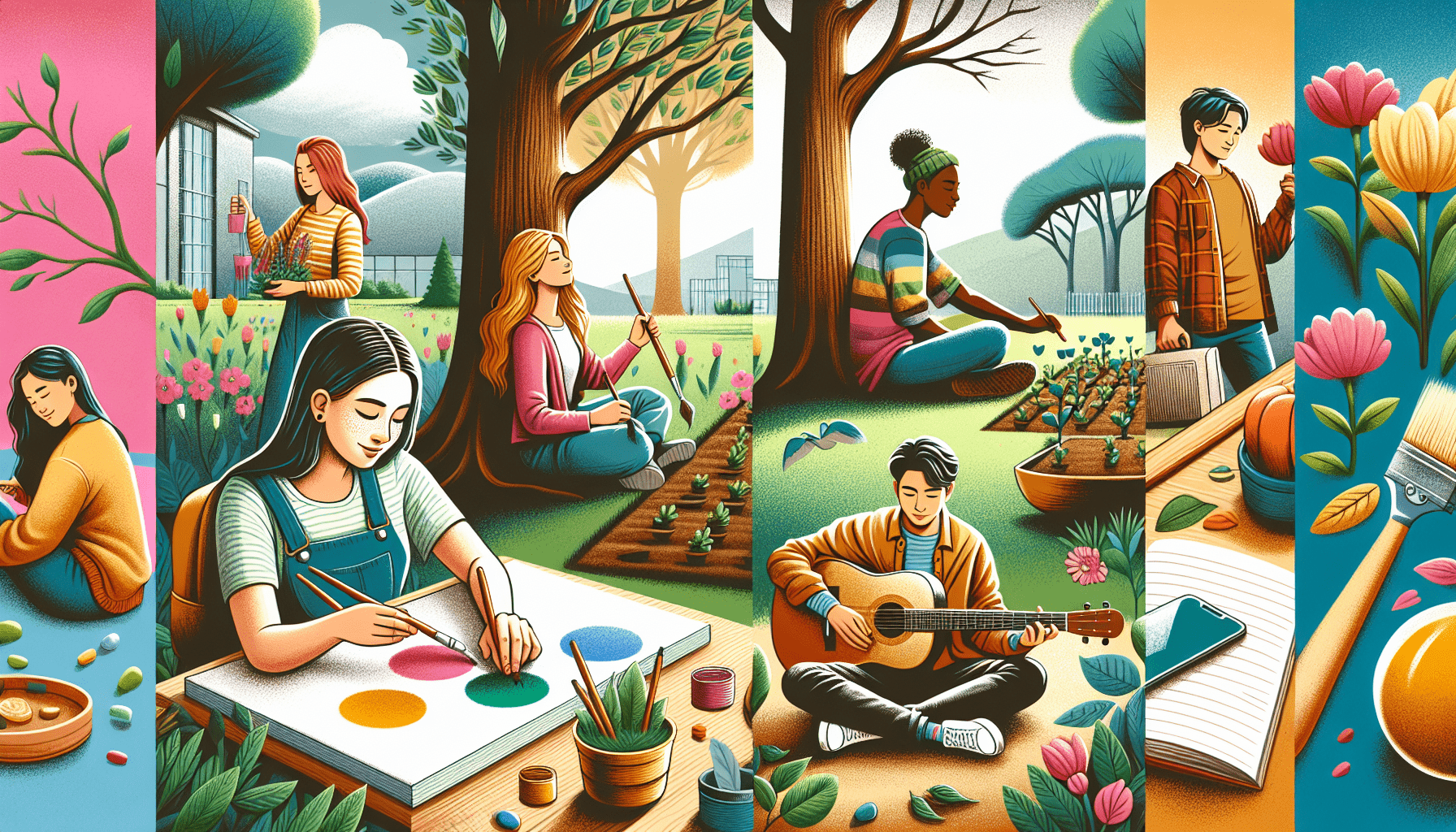Have you ever wondered how education can cultivate creativity in individuals? This article aims to explore the role of holistic education in fostering creativity. By the end of this read, you will have a deeper understanding of how a holistic approach to education can nurture and enhance your creative potential.

Understanding Holistic Education
When it comes to holistic education, the focus is not just on academic achievement but on the overall development of an individual. Holistic education seeks to nurture the mind, body, and spirit, with the aim of creating well-rounded individuals who are capable of critical thinking, empathy, and creativity. This approach views education as a lifelong process that goes beyond traditional academic subjects.
How can holistic education benefit you?
Holistic education goes beyond imparting knowledge and encourages personal growth and self-awareness. By focusing on the development of the whole person, holistic education can help you discover your passions, strengths, and areas for improvement. This self-awareness can then translate into enhanced creativity in various aspects of your life.
Cultivating Creativity through Holistic Education
Creativity is often associated with the ability to think outside the box, come up with innovative solutions, and see things from different perspectives. Holistic education provides a nurturing environment that encourages creative thinking and expression.
How does holistic education foster creativity?
Holistic education values creativity as an essential component of learning and personal growth. By incorporating art, music, drama, and other creative outlets into the curriculum, holistic education provides students with the opportunity to explore and express themselves in unique ways. This freedom of expression can spark creativity and inspire individuals to think creatively in all areas of their lives.
How can you benefit from a holistic approach to education?
By embracing a holistic approach to education, you can tap into your creative potential and cultivate a mindset that values innovation and originality. Holistic education encourages you to think critically, explore new ideas, and take risks in your learning journey. This can lead to a deeper understanding of complex concepts, as well as the ability to find creative solutions to problems.
The Importance of Mindfulness in Holistic Education
Mindfulness is a key component of holistic education that focuses on being present in the moment, cultivating self-awareness, and developing a sense of inner peace. By practicing mindfulness, you can enhance your creative abilities and learn to approach challenges with a calm and focused mind.
How can mindfulness enhance creativity?
Mindfulness allows you to quiet the noise of everyday life and connect with your inner thoughts and feelings. This self-awareness can lead to more creative insights and innovative ideas. By practicing mindfulness, you can unlock your creative potential and find inspiration in unexpected places.
How can you incorporate mindfulness into your daily routine?
You can incorporate mindfulness into your daily routine by practicing meditation, deep breathing exercises, or simply taking a few moments to be present and aware of your surroundings. By cultivating mindfulness, you can reduce stress, improve focus, and enhance your overall well-being, which can in turn boost your creativity.
The Role of Collaboration in Fostering Creativity
Collaboration plays a crucial role in fostering creativity, as it brings together individuals with different perspectives, skills, and experiences to work towards a common goal. Holistic education emphasizes the value of collaboration and cooperation in creating a supportive and inclusive learning environment.
How does collaboration enhance creativity?
Collaboration allows you to tap into the diverse talents and strengths of others, which can spark new ideas and innovative solutions. By working together with your peers, you can learn from each other, share insights, and inspire one another to think creatively. Collaboration also teaches you important skills such as communication, teamwork, and problem-solving, which are essential for fostering creativity.
How can you cultivate a collaborative mindset?
You can cultivate a collaborative mindset by embracing diversity, being open to new ideas, and actively seeking out opportunities to work with others. By valuing teamwork and cooperation, you can create a supportive community that fosters creativity and innovation. Collaboration can help you expand your horizons, challenge your assumptions, and view problems from multiple angles, leading to more creative and effective solutions.

Embracing Experimentation and Risk-taking in Education
Holistic education encourages experimentation and risk-taking as essential components of the learning process. By stepping outside your comfort zone and trying new things, you can push the boundaries of your creativity and discover innovative solutions to challenges.
How does experimentation lead to creativity?
Experimentation involves trying new approaches, exploring different perspectives, and taking risks in your learning journey. By experimenting with new ideas and concepts, you can uncover unexpected connections, insights, and solutions. This process of trial and error can spark creativity, inspire innovation, and lead to breakthroughs in your creative thinking.
How can you embrace experimentation in your learning?
You can embrace experimentation in your learning by being open to new experiences, taking calculated risks, and challenging yourself to think outside the box. By stepping outside your comfort zone and trying new things, you can expand your creative horizons and develop a growth mindset that values learning from failure. Embracing experimentation can help you cultivate a sense of curiosity, resilience, and adaptability that are key to fostering creativity.
The Impact of Nature and Outdoor Learning on Creativity
Nature and outdoor learning have been shown to have a positive impact on creativity, mental well-being, and cognitive development. Holistic education often incorporates nature-based activities and outdoor experiences to nurture creativity and foster a deeper connection with the natural world.
How does nature inspire creativity?
Nature has a way of stimulating your senses, calming your mind, and inspiring your imagination. By spending time in nature, you can escape the distractions of modern life and connect with the beauty and wonder of the natural world. This sense of awe and appreciation for nature can fuel your creativity, inspire new ideas, and encourage you to see the world in a different light.
How can you incorporate nature into your learning?
You can incorporate nature into your learning by taking walks in the park, exploring outdoor spaces, or engaging in nature-based activities such as gardening, bird-watching, or nature journaling. By immersing yourself in nature, you can recharge your creativity, reduce stress, and enhance your focus and concentration. Nature provides a rich source of inspiration that can stimulate your creativity and foster a sense of curiosity and wonder.
Conclusion
In conclusion, holistic education plays a vital role in fostering creativity by nurturing the mind, body, and spirit, encouraging self-awareness, mindfulness, collaboration, experimentation, and a deep connection with nature. By embracing a holistic approach to education, you can unlock your creative potential, cultivate a growth mindset, and develop the skills and mindset necessary to thrive in an ever-changing world. Remember, creativity is not just about thinking outside the box but about creating a new box altogether. Embrace the power of holistic education to unleash your creativity and transform your learning journey.

